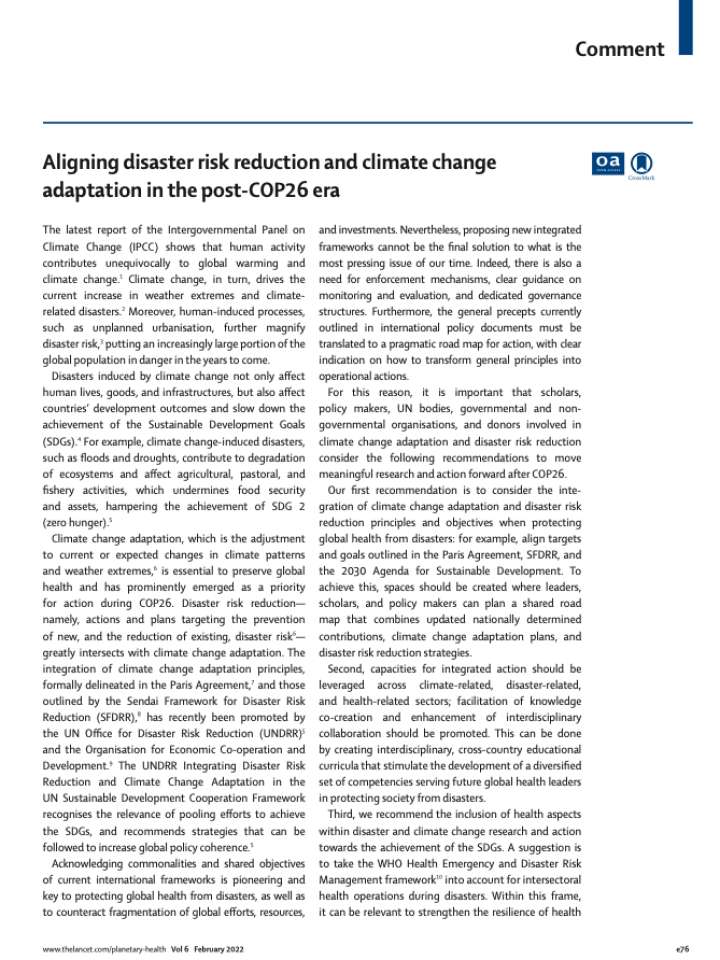Aligning disaster risk reduction and climate change adaptation in the post-COP26 era
The scientific and policy making communities have long since recognized that Disaster Risk Reduction (DRR), climate action, and sustainable development are inextricably linked. In fact, unsustainable development drives climate change and amplifies poverty and inequalities; climate change contributes to increasing poverty and it is a well-known disaster risk magnifier; and by directly affecting communities, disasters hamper sustainable development and damage vulnerable populations to a greater extent. Three main policy frameworks regulate these processes and set roadmaps to achieve their respective targets at a global level: the Sendai Framework for Disaster Risk Reduction (SFDRR), the Paris Agreement – through the Nationally Determined Contributions (NDCs) and the National Adaptation Plans (NAPs) – and the 2030 Agenda for Sustainable Development. Despite acknowledging the need for policy coherence, in practice these policy frameworks are managed by different institutions, stakeholders, UN bodies and agencies. The objective of this comment is two-fold: (1) to advocate for increased policy coherence in pursuing global goals; (2) to provide pragmatic, operational recommendations to move meaningful research and action forward while Building Back Better from the COVID-19 pandemic.
The authors recommend the following:
- Consider the integration of climate change adaptation and disaster risk reduction principles and objectives when protecting global health from disasters.
- Capacities for integrated action should be leveraged across climate-related, disaster-related, and health-related sectors; facilitation of knowledge co-creation and enhancement of interdisciplinary collaboration should be promoted.
- Inclusion of health aspects within disaster and climate change research and action towards the achievement of the SDGs.
- Risk-informed investments should be prioritised and intersectoral funding schemes that capture the complexity of global health challenges should be improved.
- Strategies aimed at translating international frameworks and legal instruments into operational guidance for practice should be defined; delineation of evidence-based pragmatic action points that can support countries’ decision makers to engage in climate change adaptation and disaster risk reduction activities is recommended.
Explore further
